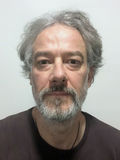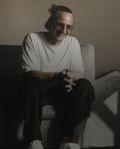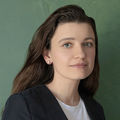SHOP TALK: Actors Talk About their Work
Actors Talk About Their Work
EFA Conference 2004
Set in Barcelona’s great Casa Llotja de Mar, a national monument in neoclassical style, the EFA Conference 2004 featured a series of discussions among some of Europe’s greatest actresses and actors. After a welcome by EFA President Wim Wenders, the EFA Conference’s patrons Assumpta Serna and Liv Ullmann both held an opening keynote on their experiences as actresses. Moderated by the British film journalist and author Peter Cowie, the EFA Conference then saw a stream of sessions dedicated to various aspects of acting.
Kicking it off, the first session, ACTING AS A VOCATION?, concentrated on the motivation for becoming an actress. As Dutch actress Renée Soutendijk said, as a child she was very shy and to her, acting was a means of expressing “this volcano of life that I somehow was not able to express in my own life.” Similarly, her Finnish colleague Irina Björklund used acting to ” get my feelings out.” Renée also said that she never looked at acting simply as a profession, “It’s my life, I feel better doing it,” she said, and “when I’m not doing it for a while I become restless, something is missing”. Of course, being successful as an actor isn’t only a matter of motivation and in a session titled THE POWER OF MY AGENT, actors Maria Grazia Cucinotta (Italy) and Enrique Alcides (Spain) discussed the role of an agent. While Enrique doesn’t have an agent because he doesn’t ” feel comfortable leaving the control to others” and approaches directors directly, Maria thinks that in order to get in touch with the right people you “need an agent, someone who knows”. Both of them thought that language is not a problem. Enrique said “acting is related to emotions and feelings, not languages” but in the ensueing audience discussion, they both switched to their native languages and eventually Liv Ullmann noted that “the last five minutes, the two of you have come much more alive than you were before talking in another language” which lead to a lot of laughter and applause. Taking up this point, actor/director Baltasar Kormakur (Iceland) started the next panel SMALL IS BEAUTIFUL with the words “Vandamálið er tungumálið til að byrja með,” illustrating a common problem for actors from smaller countries, namely the language. Dutch actress Thekla Reuten highlighted some of the positive aspects of such an intimate cinema world where “you can really establish yourself and play a lot of interesting parts” and a director will simply phone you because everybody knows everybody else. It was, however, also pointed out there are restrictions because there aren’t many films made each year and you cannot be in all of them. On the issue of “Europudding” Baltasar said that since Europe itself is becoming more of a mixture of languages and culture, “we cannot keep to the old, traditional stories when things are happening differently around us”.
After a break and a keynote by actor/director Nikita Mikhalkov (Russia), a session on the European star system saw Swedish actor Stellan Skarsgård elaborate on the fact that although there used to be true European stars like Jean Gabin or Gina Lollobrigida, today there aren’t such stars, because “we have a problem getting European films seen across Europe”. Hungarian director István Szabó talked about his belief that an audience wants to identify with what they see on screen and took a closer look at the faces in 20th century film. These faces, he said, “always represent a political or economic period” and so “being an actor also has a history, and this history is connected with the history of the country”.
Actors Jerzy Stuhr (Poland) and Michele Placido (Italy) talked about the experience and challenges of actors who cross over to direct, also an experience a lot of European actors share, and in the final session actress Franka Potente (Germany) and actor/director Jean-Marc Barr (France/USA) discussed HOW TO SUCCEED IN A COMPETITIVE ENVIRONMENT. Jean-Marc explained that he has no problem going from a lead role to playing a small part. “Making money is great,” he said, “but if I can be on the screen when an emotion is shared with the audience, that, to me is success.” Franka talked about her experiences in Hollywood, saying that “you always remain an exotic, outsider person, which I think bears the most freedom” but also said that as a younger actress you’d probably end up with “a nervous breakdown and eating disorders”. In the end, Jean-Marc stated that Europe mustn’t try copying something else or “our culture will disappear” and, summing up the general mood at the Casa Llotja de Mar, called for Europeans to “do something totally new!”
* * *
The EFA Conference 2004 was organised in co-operation with the Spanish Ministerio de Cultura, the Generalitat de Catalunya and the Ayuntamiento de Barcelona.
Thanks to German Federal Film Board (FFA), Jaguar, MEDIA Plus Programme of the EU and Nordic Film & TV Fund (NFTF)









